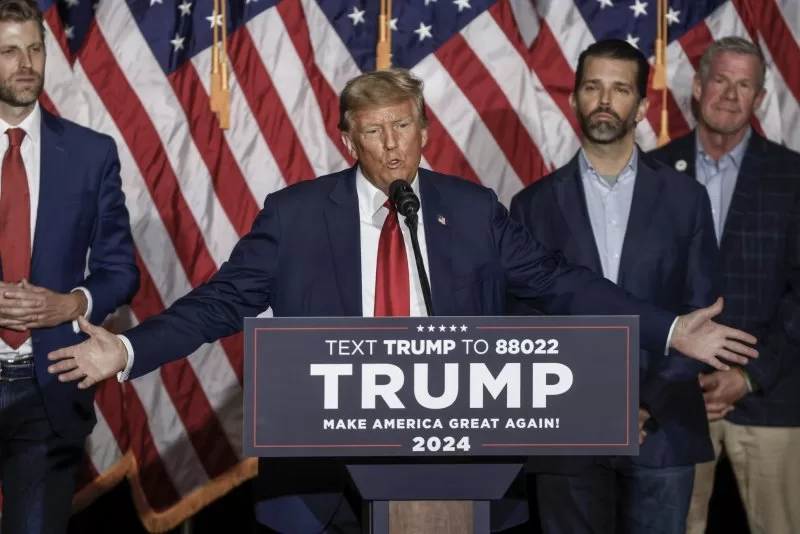Feb. 8 (UPI) — Oral arguments are underway before the U.S. Supreme Court on Thursday over former President Donald Trump‘s ballot eligibility.
More than a month after the Colorado Supreme Court ruled that Section 3 of the 14th Amendment of the U.S. Constitution disqualifies Trump from appearing on the ballot, the high court is taking the first steps toward an ultimate decision.
The question at the center of the case is whether Trump’s actions leading up to and on the Jan. 6, 2021, attack on the U.S. Capitol should bar him from running for office again.
Jonathan F. Mitchell, conservative attorney representing Trump, delivered his initial argument in less than five minutes, stating that Section 3 does not apply for two reasons. First, the president is not an officer of the United States “as the term is used throughout the Constitution.” He said “officer” only apply to individuals who were appointed to their office.
Second, Mitchell argued that only Congress can deem a candidate ineligible.
“The question of eligibility to serve as president of the United States is properly reserved for Congress, not the state courts, to consider and decide,” Trump’s attorneys wrote. “By considering the question of President Trump’s eligibility and barring him from the ballot, the Colorado Supreme Court arrogated Congress’ authority.”
Justice Clarence Thomas asked Mitchell to expound on whether Section 3 is a self executing clause. Sen. Dick Durbin, D-Ill.,, called on Thomas to recuse himself from the case on Wednesday, citing his wife’s alleged involvement in efforts to overturn the results of the 2020 election in favor of Trump.
Responding to Thomas, Mitchell repeated that the execution of Section 3 relies solely on Congressional action.
Section 3 states that Congress may overturn the disqualification of a candidate with a two-thirds vote.
The Colorado Supreme Court agreed with a lower court judge that Trump engaged in an insurrection and incited the riot by “exhorting his supporters” with false claims about election fraud.
“We conclude that the foregoing evidence, the great bulk of which was undisputed at trial, established that President Trump engaged in insurrection,” the court ruled. “President Trump’s direct and express efforts, over several months, exhorting his supporters to march to the Capitol to prevent what he falsely characterized as an alleged fraud on the people of this country were indisputably overt and voluntary.”
Trump’s attorneys have also argued that Trump’s claims about the 2020 presidential election are protected speech and that he was acting in his role as president by investigating the results and validity of the election.
Despite the Colorado district court’s decision that Trump would remain on the ballot, he appealed that judge’s ruling that he incited and engaged in an insurrection.
The case, Donald J. Trump vs. Norma Anderson, et al, is scheduled for 80 minutes of oral arguments. Trump’s attorneys are allotted 40 minutes. The attorneys for the six Republican and unaffiliated Colorado voters that challenged Trump’s eligibility will be given 30 minutes. Colorado Solicitor General Shannon Stevenson, representing Secretary of State Jena Griswold, will have 10 minutes.
Citizens for Responsibility and Ethics in Washington represented the Colorado voters in a district court procedure and in the state’s supreme court.
Several more states’ courts have faced the same question. Massachusetts, Minnesota, Illinois, Michigan and Maine rejected attempts to remove Trump from the ballot.
